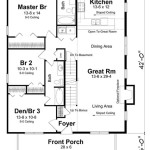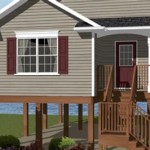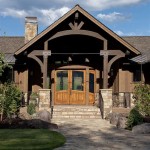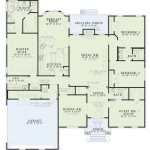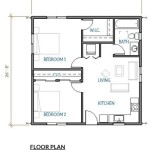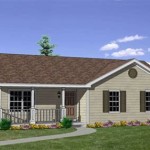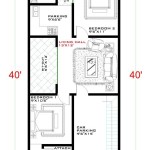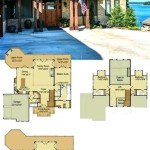Farmhouse Plans With Detached Garage: Exploring Design Options and Benefits
The farmhouse aesthetic, characterized by its rustic charm, simplicity, and connection to nature, remains a consistently popular choice for homeowners. When coupled with a detached garage, the advantages extend beyond mere storage, offering enhanced flexibility, aesthetic appeal, and potential for future expansion. Farmhouse plans with detached garages present a unique opportunity to blend functionality with a timeless architectural style.
These plans typically feature spacious layouts, comfortable living areas, and an emphasis on natural light. The detached garage complements this by providing parking, workshop space, or even a separate living area, all while maintaining the distinct farmhouse character. This article explores the various design options, potential benefits, and key considerations involved in selecting farmhouse plans with a detached garage.
Understanding the Appeal of Farmhouse Style
The allure of farmhouse architecture lies in its connection to a simpler way of life. Key elements include gabled roofs, large porches, board-and-batten siding, and an emphasis on natural materials like wood and stone. Farmhouse interiors often feature open floor plans, exposed beams, and a focus on creating a warm and inviting atmosphere. The style lends itself well to personalization and can be adapted to suit various climates and terrains.
The modern farmhouse trend incorporates these traditional elements while incorporating contemporary features and conveniences. This often includes larger windows, updated appliances, and more efficient building materials. The overall aesthetic remains rooted in the past but embraces modern comforts and design principles.
A detached garage further enhances the farmhouse appeal. By separating the garage from the main living space, the architectural integrity of the farmhouse is preserved, and the visual clutter associated with vehicle storage is minimized. The garage itself can be designed to complement the farmhouse style, using similar materials and architectural details.
Evaluating the Benefits of a Detached Garage
Opting for a detached garage over an attached one offers several distinct advantages. These benefits extend beyond mere aesthetics and can significantly impact the functionality and value of the property.
One primary benefit is noise reduction. A detached garage effectively isolates vehicle noise from the main living area. This can be particularly beneficial for homeowners who value peace and quiet, or those who use the garage for workshop activities involving power tools or other noisy equipment.
Fire safety is another crucial consideration. A detached garage significantly reduces the risk of a fire spreading from the garage to the main house. This is especially important considering the presence of flammable liquids and potential ignition sources often found in garages.
Furthermore, detached garages offer greater design flexibility. They can be placed strategically on the property to maximize curb appeal, create visual interest, or take advantage of specific landscape features. The distance between the garage and the house can also be adjusted to suit the homeowner's needs and preferences.
Detached garages can also be designed as multi-functional spaces. Beyond vehicle storage, they can serve as workshops, home gyms, or even guest houses. This versatility adds significant value to the property and provides additional living space without requiring extensive renovations to the main house.
Key Considerations When Selecting Farmhouse Plans With a Detached Garage
Choosing the right farmhouse plan with a detached garage requires careful consideration of several factors. These considerations include budget, site conditions, local building codes, and the homeowner's specific needs and preferences.
Budget is a critical factor in any construction project. Detached garages generally require a larger initial investment compared to attached garages, due to the need for a separate foundation, walls, and roof. However, the long-term benefits, such as increased property value and reduced risk of fire damage, may outweigh the initial cost.
Site conditions also play a significant role in determining the feasibility of a detached garage. The slope of the land, soil type, and accessibility for construction equipment must be carefully considered. In some cases, extensive site preparation may be required to ensure a stable foundation for the garage.
Local building codes and zoning regulations can also impose restrictions on the placement and size of detached garages. It is essential to consult with local authorities to ensure that the proposed garage complies with all applicable regulations. This includes requirements for setbacks, height restrictions, and building permits.
The size of the garage should be determined based on the homeowner's specific needs and preferences. Consider the number of vehicles to be stored, as well as any additional storage requirements for tools, equipment, or recreational vehicles. It is also important to consider the potential for future expansion when determining the size of the garage.
The design of the garage should complement the overall aesthetic of the farmhouse. This includes the choice of materials, colors, and architectural details. Consider using similar siding, roofing, and window styles to create a cohesive look. Adding farmhouse-inspired features, such as barn doors or a cupola, can further enhance the garage's visual appeal.
The connection between the house and the detached garage should also be carefully considered. A covered walkway or breezeway can provide protection from the elements and create a seamless transition between the two structures. Landscaping can also be used to visually connect the house and garage, creating a sense of unity.
Finally, consider the potential for using the garage as a multi-functional space. Adding insulation, heating, and cooling can make the garage more comfortable for use as a workshop, home gym, or guest house. Thoughtful planning and design can transform the garage into a valuable and versatile addition to the property.
Beyond the structural aspect, focusing on the aesthetic unity is important. The detached garage should echo the existing farmhouse’s colors, materials, and stylistic details. If the farmhouse features board-and-batten siding, incorporating this element into the garage’s design will create a harmonious look. Similarly, matching roofing materials and window styles will contribute to a cohesive architectural statement.
Furthermore, landscaping plays a crucial role in connecting the detached garage to the main residence. Planting trees, shrubs, and flowers around the garage can soften its appearance and integrate it into the surrounding environment. Consider using native plants that are well-suited to the local climate and require minimal maintenance. A well-designed landscape can enhance the overall curb appeal of the property and create a welcoming atmosphere.
Interior planning should not be overlooked when designing a detached garage for a farmhouse. Proper lighting is essential for both functionality and safety. Consider installing a combination of overhead lighting, task lighting, and exterior lighting to ensure adequate illumination. Electrical outlets should be strategically placed throughout the garage to accommodate power tools, equipment, and other electrical devices. Ample storage space is also crucial for keeping the garage organized and clutter-free. Consider installing shelving, cabinets, and overhead storage racks to maximize storage capacity.
The driveway leading to the detached garage should also be carefully planned. The driveway should be wide enough to accommodate vehicles and provide adequate turning space. The surface of the driveway should be durable and weather-resistant. Consider using materials such as concrete, asphalt, or gravel. Proper drainage is also essential to prevent water from pooling on the driveway and causing damage.
In conclusion, selecting farmhouse plans with a detached garage demands meticulous planning and a comprehensive understanding of the various factors involved. Prioritizing budget, adhering to local regulations, and aligning the design with the existing farmhouse are key elements. By carefully addressing these aspects, the outcome will be a functional and aesthetically pleasing addition that complements the farmhouse aesthetic and enhances the overall property value.

New Popular House Plans With Detached Garages Dfd

Elegant Country House Plans Plan 6258

Kelseys Farm House Floor Plan Frank Betz Associates

Modern Farmhouse Plan With Detached Garage

Garage Apartment Plans Farmhouse Modern And More Houseplans Blog Com

Beautiful Cottage Style House Plan 7055 2024 Idea

Modern Farmhouse Garage Plan Adkins Plans With Loft

New Popular House Plans With Detached Garages Dfd

Arts Crafts Bungalow With Detached Garage Ii

Modern Farmhouse Garage Plan Adkins Plans Detached

